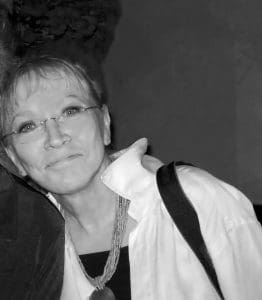 Tell us about yourself and how many books you have written.
Tell us about yourself and how many books you have written.
I’ve written six books to date: How to Be Your Own Therapist, It’s Not All in Your Head: Anxiety, Depression and Mood Swings in MS, Fired Up: A journey through psychiatry, TV and the wonders of life, Work Stress How You Can Beat It, A Social Security Disability Psychological Claims Handbook, and A Social Security Disability Psychological Claims Guidebook for Children’s Benefits
A native New Yorker, I grew up in Queens, received my education initially from nuns in grade school and then on to the NY City school system for high school and college (Queens, of course) and then on to NYU for both my MA and Ph.D. degrees in psychology. All of my college courses were in the evening while I worked full-time during the day. I will be forever grateful to NYC because it gave me an almost free college education, something that is no longer offered. I, thankfully, was in the last class to receive such a wonderful benefit which made college possible for me.
I’m a psychologist expert for WebMD, licensed psychologist in NJ and Florida, I have experience in just about every area of mental health, having worked in community mental health, psychiatric research (Alzheimer’s research), private practice, EAP programs, nursing homes, psychiatric hospitals, trained police officers and I’ve taught on the college level for over 20 years. I’ve also consulted to pharmaceutical and communications firms. You’ll probably see me on TV, in magazines and perhaps the newspapers.
What is the name of your latest book and what inspired it?
SLEEP: Everyone needs it and so do you. I had worked for two years in pharmaceutical public relations where I wrote materials for a sleep organization and began to see the seriousness of the problem. Lack of sleep isn’t something anyone should take lightly and I felt consumers needed to know what it did to them and ways to help themselves. More accidents and physical illness is caused by lack of sleep than anyone realizes. Also, wonderful things happen during sleep and I knew people would be fascinated by all of it.
Do you have any unusual writing habits?
I once interviewed Isaac Asimov when I was an editor at Publishers Weekly and he taught me one thing; never work on just one book at a time. So, I usually am writing on at least 2-3 books and doing research on all of them while I write. I’m a fast typist (Isaac typed over 100 wpm), but I found that Dragon Naturally Speaking is a great writing aid and I use it whenever I can.
What authors, or books have influenced you?
Certainly, I love the classics and Dickens is my favorite along with O’Henry, Salinger, Capote and King. Mostly, Salinger and Capote have influenced me sufficiently to nudge me into writing my first “non-fiction novel” which I am writing now. Right now, it’s over 300 pages in the first draft and there’s still more to go. I expect it may be ready for the editor next year. What is it about? A coming-of-age tale of my childhood in a mafia-controlled, extremely poor neighborhood.
What are you working on now?
Right now I’m working on two books in addition to the non-fiction novel; one on anxiety and one on cannabis. I’ve worked in the anxiety area professionally and I see the potential for cannabis as a medical herb for pain and illness.
What is your best method or website when it comes to promoting your books?
I use a number of methods; Twitter, Linkedin, Medium and Socialoomph.
Do you have any advice for new authors?
Everyone says write about what you know and I believe that’s true. But write because it’s something you are almost forced to write by a force within you. Find your own style and, if you believe in it, don’t give in to others. Bias can enter the process and prove a stumbling block for you. But there’s always the consideration of your audience and how you want to relate to them. Remember that Salinger was turned down by over 25 publishers when he first began writing. Hemingway wrote for dime novels when he began, so the “great American novel” isn’t always a smooth path to authorship.
What is the best advice you have ever heard?
No one ever advised me on writing, except Asimov and he didn’t realize advise me. I got the idea when he opened 9 drawers in his desk and showed me that he was working on 9 books at one time. All of them were on different topics from chemistry to sex and he published, at that time, 125 books. He always wrote ONE draft, did all his own typing and editing and had no agent or secretary. Everything he did in writing was a one-man shop.
What are you reading now?
I’m reading three books as I try to learn to code in Python; Normal, an insider’s revolt against out-of-control psychiatric diagnosis, Zealot: The life and times of Jesus of Nazareth and Hacking: A beginner’s guide.
What’s next for you as a writer?
I want to learn to program in Python and see how that might improve my writing because it helps clarify your analytic skills and I’m always eager for self-improvement. Also, I might like to write a screenplay.
If you were going to be stranded on a desert island and allowed to take 3 or 4 books with you what books would you bring?
Great Expectations, Gone With the Wind and Answered Prayers.
Author Websites and Profiles
Patricia Farrell Amazon Profile
Patricia Farrell’s Social Media Links
Goodreads Profile
Twitter Account